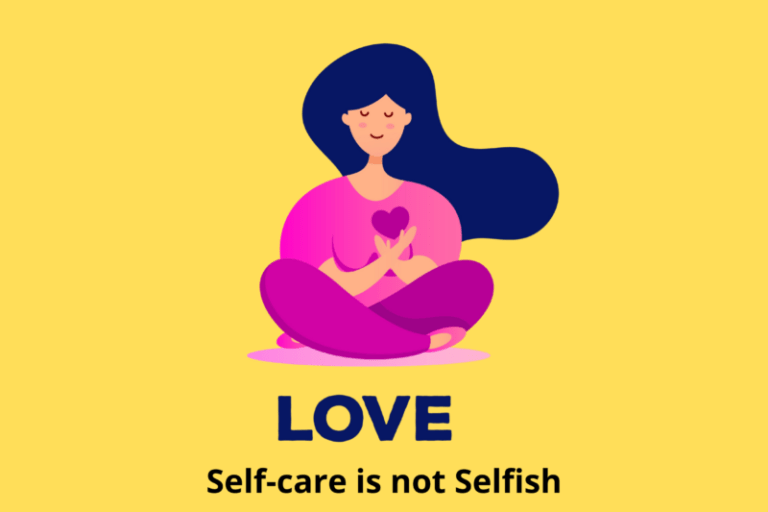Key Contents
The Importance of Self-Care: Why You Need to Prioritize Your Well-being
In today’s fast-paced world, the importance of self-care has never been more evident. With mounting pressures from work, family, and societal expectations, taking care of oneself often takes a backseat. However, neglecting self-care can lead to burnout, stress, and various health issues. This article explores why self-care is essential, how it impacts overall well-being, and practical ways to incorporate self-care into your daily life.
What Is Self-Care?
Self-care refers to the deliberate actions individuals take to maintain and improve their physical, emotional, and mental well-being. It encompasses a wide range of activities, from basic habits like eating a balanced diet and exercising to more intentional practices like meditation, journaling, and setting personal boundaries.

The World Health Organization (WHO) defines self-care as “the ability of individuals, families, and communities to promote health, prevent disease, maintain health, and cope with illness and disability with or without the support of a healthcare provider.” In essence, self-care is about taking responsibility for one’s health and well-being and making conscious efforts to nurture oneself.
Why Is Self-Care Important?
The importance of self-care cannot be overstated. Here are some reasons why incorporating self-care into your daily routine is crucial:
1. Reduces Stress and Anxiety
- Engaging in self-care activities can significantly reduce stress and anxiety levels. When you take time to relax, unwind, and focus on yourself, it helps your mind and body recover from the demands of daily life. Activities like meditation, deep breathing, and spending time in nature have been proven to lower cortisol levels (the stress hormone) and promote relaxation.
2. Improves Mental Health
- Mental health is a critical aspect of overall well-being, and self-care plays a vital role in maintaining a healthy mind. By engaging in activities that bring joy, fulfillment, and relaxation, you can boost your mood, increase feelings of happiness, and reduce symptoms of depression and anxiety. Regular self-care practices like journaling, practicing gratitude, and engaging in hobbies can have a positive impact on your mental health.

3. Enhances Physical Health
- Self-care is not just about mental well-being; it also has a direct impact on physical health. Engaging in regular exercise, eating nutritious foods, getting enough sleep, and staying hydrated are essential self-care practices that improve physical health. These habits can help lower the risk of chronic diseases, boost the immune system, and increase overall energy levels.
4. Increases Productivity and Focus
- Taking time to care for yourself can lead to increased productivity and focus. When you prioritize self-care, you are more likely to feel energized, motivated, and ready to tackle tasks. Activities like taking short breaks during work, practicing mindfulness, and engaging in physical exercise can improve concentration and cognitive function.
5. Promotes Healthy Relationships
- When you take care of yourself, you are better equipped to take care of others. Self-care enables you to set healthy boundaries, communicate effectively, and maintain positive relationships with those around you. By prioritizing your well-being, you can show up as your best self in your personal and professional relationships.
Different Types of Self-Care
Self-care is a multifaceted concept that encompasses various aspects of well-being. Here are the different types of self-care that you can incorporate into your daily life:
1. Physical Self-Care
- Involves activities that improve your physical health, such as exercising, eating nutritious foods, getting enough sleep, and staying hydrated.
- Example: Engaging in a 30-minute workout, taking a brisk walk, or enjoying a healthy meal.
2. Emotional Self-Care
- Focuses on acknowledging and understanding your emotions, processing feelings, and developing emotional resilience.
- Example: Journaling your thoughts, talking to a friend or therapist, or practicing gratitude.

3. Mental Self-Care
- Involves activities that stimulate and engage your mind, helping you stay mentally sharp and reducing stress.
- Example: Reading a book, solving puzzles, or engaging in a creative hobby.
4. Spiritual Self-Care
- Involves practices that nourish your soul and help you connect with a sense of purpose and meaning.
- Example: Meditation, prayer, spending time in nature, or practicing mindfulness.
5. Social Self-Care
- Involves building and maintaining healthy relationships with others, as social connections are essential for overall well-being.
- Example: Spending quality time with loved ones, participating in social activities, or reaching out to friends.

Practical Self-Care Tips for Daily Life
Incorporating self-care into your daily routine doesn’t have to be complicated. Here are some practical self-care tips to help you get started:
- Prioritize Sleep: Aim for 7-9 hours of quality sleep each night. Create a bedtime routine, avoid screens before bedtime, and create a comfortable sleeping environment.
- Stay Active: Engage in at least 30 minutes of physical activity each day. Find an exercise that you enjoy, whether it’s walking, dancing, yoga, or strength training.
- Practice Mindfulness: Take a few minutes each day to practice mindfulness or meditation. Focus on your breath, observe your thoughts, and allow yourself to be present in the moment.
- Set Boundaries: Learn to say “no” to activities or commitments that do not align with your values or goals. Protect your time and energy by setting clear boundaries.
- Engage in Hobbies: Dedicate time to activities that bring you joy and fulfillment. Whether it’s painting, cooking, gardening, or playing an instrument, hobbies are an essential part of self-care.
- Nourish Your Body: Eat a balanced diet rich in fruits, vegetables, whole grains, and lean proteins. Stay hydrated by drinking plenty of water throughout the day.
- Connect with Loved Ones: Spend time with family and friends, and nurture your social connections. Human interactions are vital for emotional well-being.

Overcoming Common Barriers to Self-Care
Despite understanding the importance of self-care, many people struggle to prioritize it. Here are some common barriers to self-care and tips to overcome them:
- Lack of Time: Incorporate small self-care practices into your daily routine, such as taking short breaks, practicing deep breathing, or enjoying a cup of tea.
- Guilt: Remember that self-care is not selfish; it’s a necessary aspect of maintaining your well-being. Taking care of yourself enables you to take care of others more effectively.
- Procrastination: Start with small, manageable self-care activities and gradually build up. Consistency is key to making self-care a habit.
Make Self-Care a Priority
The importance of self-care cannot be emphasized enough. By incorporating self-care practices into your daily life, you can improve your physical health, mental well-being, and overall quality of life. Remember that self-care is not a luxury but a necessity. Prioritize yourself, set aside time for self-care, and experience the positive impact it has on your life.
For Latest Updates, Click Here.
